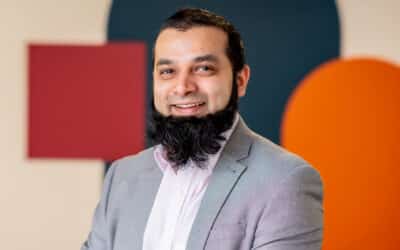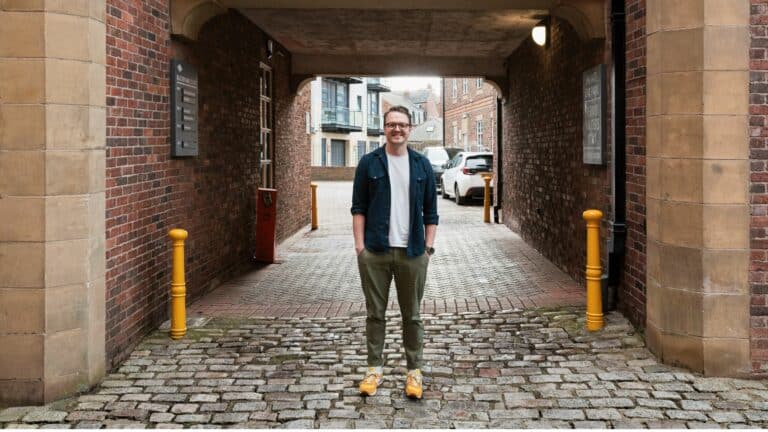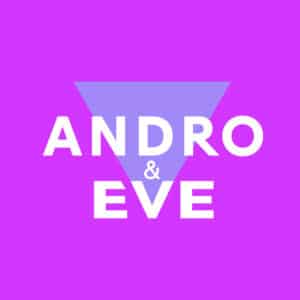Andy Robson is the founder and agency director at SQUIDGY, a Newcastle-based digital marketing agency.
Robson initially set up SQUIDGY in 2010 as a brand for his digital marketing consultancy, later evolving it into an agency in 2020. The agency announced plans to double its headcount by 2026 earlier this year, and works with clients such as Alnwick Castle, Visit Northumberland, Jackson Hogg and Bayfields Opticians
From big job challenges, overcoming adversity to crucial career skills, Robson shares his career journey with some words of advice…
How did you first get into your industry?
My journey into the industry probably began when my dad gave me a PC around the age of 10 or 11, with the advice: ‘You can’t break it.’ That encouragement led me to explore technology without fear, and I quickly became comfortable with IT. In my late teens, I started building websites for small businesses. They then started asking how to get on to Google, and that was the spark which led me into SEO, and from that point, I was hooked.
What do you love about your job?
It might sound cliché, but what I love most about digital marketing is its constant evolution. While it can sometimes be frustrating, the industry is always changing, ensuring that what we’re doing now will be different from what we do in five years and for me, that’s hugely exciting.
Who – or what – has inspired you in your career?
I’ve been fortunate to be surrounded by a hardworking family who instilled in me a strong work ethic and continuously encouraged me to pursue my passions. So, when I started with computers then web builds then digital marketing, they were there fanning the flame. From the moment I stepped through the door of my first ‘proper’ agency job, I loved the idea of starting my own digital agency one day but never thought I’d get the chance.
I left my agency role in September 2019, closely followed by a global pandemic. In September 2020, I ended up in an induced coma. After that, my outlook pretty much did a 180. I thought: ‘if I don’t do this now, I never will’. By December 2020 the first SQUIDGY employee started.
What are the biggest challenges about your job?
For me, I need to ensure I dedicate time to staying in the game. As an agency director, I often find myself doing tasks which have absolutely nothing to do with digital marketing but everything about running a business, which of course, I love, but my primary passion will always be digital marketing. It’s easy enough to become rusty when you step away from the front line, which can often lead to a lack of confidence, so I ensure I carve out time on a regular basis and do the same tasks my team do.
What skills have been the most crucial to you succeeding in your career so far?
I find it challenging to pinpoint a single ‘skill’ but a key personal attribute has been a love for problem-solving, particularly in SEO. It’s something that’s hard to teach, but in my experience, the most successful people in the digital space are those who enjoy diving into a challenge, dissecting it, and applying solutions to real-world scenarios. You also can’t be afraid to fail – you need to take risks but be logical enough to identify when something isn’t working and requires change.
What was your first salary and what could someone getting into the industry expect to earn nowadays?
My first ‘proper’ job was at Somerfield, earning around £3.40 per hour. Between my first-ever job and becoming a full-time sole trading freelancer, I was also training to be an IT teacher, spent a couple of years as a financial advisor, plus two more as a business advisor. When I was made redundant around 2012, I decided to make the leap into freelancing, however, it wasn’t long before fear got the better of me, self-doubt and imposter syndrome left me panicking a little (I did have a wedding to pay for), so I quickly sought a stable job and managed to negotiate a salary from £12,000 to £13,000, though I only stayed for two weeks. I quickly realised that the role wasn’t right, the pay was terrible and the company was absolutely taking advantage of me. Lesson learned.
Fast forward to 2015, after freelancing for about three years, I took a position as a senior SEO consultant with a salary of £30,000. Nowadays, I’d say entry-level roles in the industry typically start at around £22,500.
What education or training would be most useful for someone looking to follow your career path?
There are excellent resources available, most of which are free. However, if you’re interested in digital marketing, it’s crucial to do some research first, as not all resources are equally valuable. One of the best ways to learn is by building your own website. This hands-on experience will teach you how websites work, how to get them indexed on Google, how to create and optimise content, and, most importantly, how to troubleshoot when things go wrong. It’s far better to make mistakes on your own site than on clients!
What advice would you have for someone looking to follow your path?
If you like the idea of digital marketing, do a bit of everything. Over the years I’ve seen people enjoy their jobs but not love them, then they’d taken a side step from one area to another and it’s been a game-changer for them. Figure out what you love, and pursue it. Also, even if you like the idea of going it alone, still go and get some agency experience first – it will do wonders for your confidence, but also there are scenarios you’ll find yourself in that you may not find as frequently when it’s just you, and that experience is invaluable.












